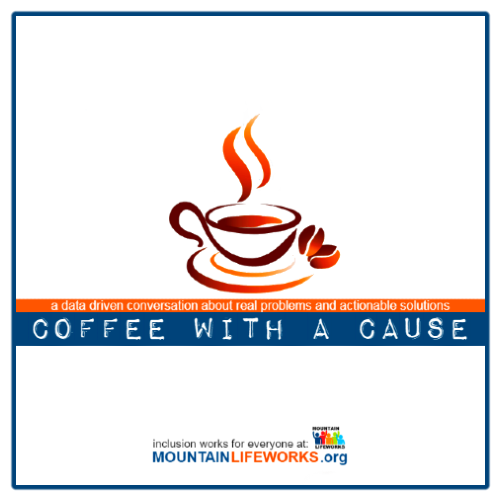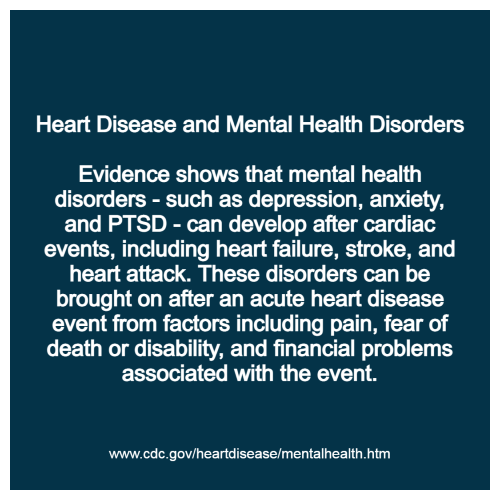
FEBRUARY 2024 heart month
Did you know CDC data shows heart disease is the leading cause of
death for people of most racial and ethnic groups in the United
States. One person dies
every 34 seconds from cardiovascular disease in the
People experiencing depression, anxiety, stress, and PTSD over a long period of time may experience physiologic effects on the body, such as increased cardiac reactivity (e.g., increased heart rate and blood pressure), reduced blood flow to the heart, and heightened levels of cortisol. This includes people with disabilities and family caregivers. Over time, these physiologic effects can lead to calcium buildup in the arteries, metabolic disease, and heart disease. Data shows mental health disorders such as depression, anxiety, and PTSD can develop after cardiac events, including heart failure, stroke, and heart attack. These disorders can occur as a result of factors including pain, fear of death, disability, financial problems and can even lead to suicide.
Heart Month | Mountain Lifeworks
Heart Disease and Mental Health Disorders | cdc.gov

Coffee with a Cause february 2024
Depression and heart disease have overlapping
symptoms like fatigue, low energy, and difficulty sleeping. It is
important to be attentive to your body and recognize what is
abnormal for you. Not enough heart attack survivors are told about
how common post-heart attack depression is, and not enough people
with depression are told by their mental health provider about how
their condition can affect their heart health.
Individuals recovering from a heart attack and cardiac events require both physical and mental health support systems. When uncertainty and anxiety become debilitating and interfere with daily life functions, then the process of rehabilitation and recovery after a heart attack or other cardiac event may need to include mental health support and treatment for depression. These include cardiac rehabilitation, social groups, and specialized evaluation and treatment by mental health and social workers.

Coffee with a Cause february 2024
Studies found cardiac rehabilitation helps men and women, people of all ages, and people with mild, moderate, and severe heart problems. Cardiac rehabilitation can help a person recover from a heart problem but can also prevent future heart problems. It’s natural to withdraw and lose social confidence after a heart attack. According to some studies social engagement helps recovery. Studies indicate returning to normal activity and seeing the progress of other people recovering from a heart attack can significantly improve mood and confidence. The need to address other physical conditions can make cardiac rehabilitation especially useful, and it can help improve strength and mobility for performing daily tasks.
How Cardiac Rehabilitation Can Help Heal Your Heart | cdc.gov
Anyone who has had
a heart problem, such as a heart attack, heart failure, or heart
surgery, can benefit from cardiac rehabilitation. Cardiac
rehabilitation has many health benefits in both the short and long
term, including: strengthening the heart and body after a heart
attack, and relieve symptoms, such as chest pain. It helps build
healthy habits such as getting more physical activity, quitting
smoking, and eating a heart-healthy diet. Cardiac rehab reduces
stress and can help prevent or lessen depression making patients
more likely to take prescribed medicines helping lower risk for
future heart problems. Studies found cardiac rehabilitation
decreases the chances of death in the 5 years following a heart
attack or bypass surgery by about 35%.
Remember a balanced approach uses verified data to identify problems and to propose actionable solutions. Only those willing to have difficult conversations can solve difficult problems. The first step to solving any problem is accepting the data indicating a problem... not blaming the messenger or method of delivery.
So join us for Coffee with a Cause and let's keep the conversation going each month with more data and actionable real life solutions!